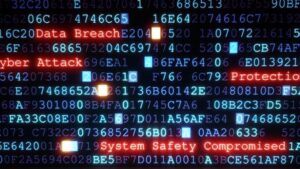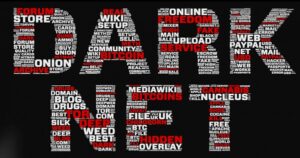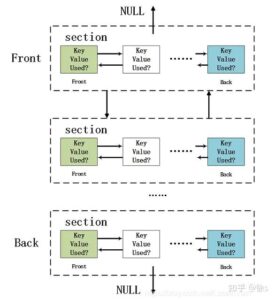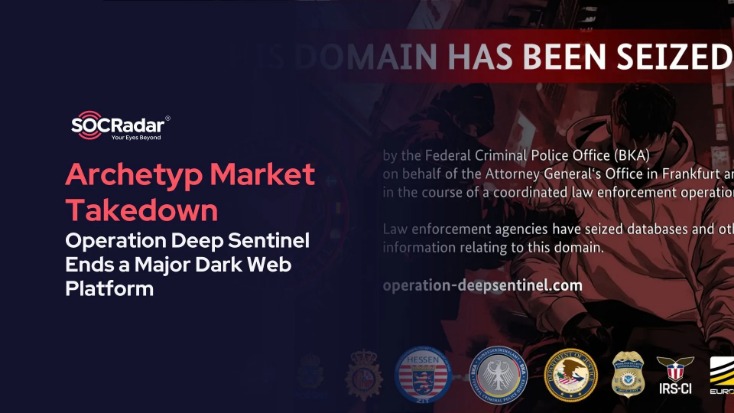
Between 11 and 13 June, a series of coordinated actions took place across Germany, the Netherlands, Romania, Spain, Sweden, targeting the platform’s administrator, moderators, key vendors, and technical infrastructure. Around 300 officers were deployed to carry out enforcement actions and secure critical evidence. Investigators traced cryptocurrency flows, infiltrated vendor networks, and de-anonymized key actors through advanced digital forensics. The net closed on June 13, when over 300 officers launched synchronized raids across Europe.

However, we do not guarantee individual replies due to the high volume of messages. Payments were not made in euros or dollars, but with the anonymous cryptocurrency Monero, which is particularly difficult to trace.
- At the same time, 2024 saw a 42% decline in the number of new darknet marketplaces launched year over year — a signal that while the market is consolidating, it is also becoming more sophisticated.
- Around 300 officers were deployed to carry out enforcement actions and secure critical evidence.
- The confiscation is just a fraction of the total sum of money that flowed through the platform during the five years.
- It’s unsettling to witness such blatant criminality wrapped in a slick interface, and it’s easy to get lost in the technical and organizational aspects while forgetting the human cost.
FBI And Dutch Police Dismantle Global Fake ID Marketplace
In the case of Nemesis Market — another platform covered in TRM’s reporting — US authorities sanctioned an Iranian national linked to more than USD two million in cryptocurrency transactions involving narcotics, stolen data, and illicit services. That case, like Archetyp, demonstrates how darknet infrastructure is often transnational, technically sophisticated, and deeply intertwined with the global financial system. The shutdown of Archetyp, a major dark web drug market, demonstrates that law enforcement takedowns have only short-term effects, as such markets quickly re-emerge and adapt. Persistent trade and resilient user communities limit the long-term impact of these interventions. Focusing solely on dark web markets may overlook broader digital harms occurring on mainstream platforms.
Global Enforcement Effort: Operation Deep Sentinel
Compared to its predecessors, Archetyp enforced enhanced security expectations from its users. These included an advanced encryption program known as “Pretty Good Privacy” and a cryptocurrency called Monero. Unlike Bitcoin, which records every payment on a public ledger, Monero conceals all transaction details by default, which makes them nearly impossible to trace. However, despite its initial success, Archetyp Market was eventually overwhelmed by the growing strength and resources of Bazaar, which eventually led to its shutdown. Despite being shut down, Archetyp’s legacy remains strong in the dark web marketplace history.
This includes prohibitions on the sale of firearms, explosives, child pornography, and human trafficking. Additionally, Archetyp Market employs a secure escrow system to protect both buyers and sellers during transactions and offers a dispute resolution process to address any issues that may arise. Despite the ongoing efforts of law enforcement to dismantle darknet markets, platforms like Archetyp Market continue to emerge and evolve, highlighting the challenges faced in combating these underground ecosystems.
User Reviews
Archetyp Market emerged as one of the darknet’s most prominent criminal trading platforms, facilitating the sale of various narcotics, including amphetamine, cannabis, fentanyl, heroin, and cocaine. Law enforcement shutdowns are also only one type of disruption that dark web communities face. Dark web market users routinely face voluntary closures (the gradual retirement of a market), exit scams (sudden closures of markets where any money in escrow is taken), or even scheduled maintenance of these markets. What current policing strategies neglect is that dark web markets are not isolated to the storefronts that are the popular target of crackdowns.
US Government Seizes Online Marketplaces Used To Sell Fraudulent Identity Documents To Cybercriminals
Launched in 2020, Archetyp wasn’t just another black market, it was the market. With over ~600,000 users and ~3,200 vendors, the platform facilitated transactions involving cocaine, meth, MDMA, and other narcotics. By its final days, it had moved an estimated $~250–290 million in illicit goods, making it a titan among darknet marketplaces. In a major blow to the online drug trade, law enforcement agencies across Europe and the U.S. have taken down Archetyp Market, one of the most active and profitable dark web drug markets of the past five years. Archetyp Market quietly emerged on the dark web in May 2020 and quickly became a dominant force in illegal narcotics distribution. Through an extensive network of over 3,200 registered vendors, the platform listed more than 17,000 drug-related products.
This minimizes the risk of exit scams on Archetyp Onion Link, a common issue on other darknet markets. In conclusion, while the Archetyp Market shutdown is a major success story, it also reminds us of the persistent challenges in fighting cyber-enabled drug trafficking. Policymakers and law enforcement agencies must maintain momentum, adapting strategies to the darknet’s evolving landscape to protect public safety effectively. However, the void left by Archetyp’s takedown may soon be filled by new or existing marketplaces. The darknet ecosystem is highly dynamic, with vendors and buyers quickly migrating to other platforms.
Extra! Extra! Read All About It! Archetyp Marketplace Takedown!
This market offers a wide array of products, including drugs, counterfeit items, digital goods, and more. Archetyp Market is known for its strong security measures, such as mandatory Two-Factor Authentication (2FA) and end-to-end encryption to protect user data and communications. The platform supports multiple cryptocurrencies, including Bitcoin, Monero, and Litecoin, which allows for secure and anonymous transactions between buyers and sellers. To access Archetyp Market, users must utilize the Tor network, which provides a high level of anonymity and privacy. The marketplace has implemented a set of rules and guidelines to ensure user safety and maintain the integrity of the platform.

Archetyp Market emerged in 2020 as a major player in the darknet’s illicit drug trade, quickly gaining notoriety for its vast inventory and user base. Over five years, it became a bustling hub where over 3,200 vendors sold more than 17,000 drug listings, spanning cocaine, heroin, cannabis, MDMA, amphetamines, and highly dangerous synthetic opioids like fentanyl. With a staggering 612,000 users, the platform processed over €250 million (approximately \$289 million) in transactions, primarily in the privacy-focused Monero cryptocurrency. Europol and partner agencies have dismantled ‘Archetyp Market,’ a major drug marketplace that operated anonymously for over five years. Known for facilitating the sale of cocaine, MDMA and highly potent synthetic opioids, the platform had more than 600,000 users and processed an estimated €250 million in transactions. The seizure of Archetyp, one of the longest-running darknet markets, marks a significant victory for law enforcement in combating cybercrime.
Archetyp Was One Of The Dark Web’s Biggest Drug Markets A Global Sting Has Shut It Down
Archetyp Market, which boasted more than 600,000 users, operated for more than five years and contained more than 17,000 listings for illicit substances, including cocaine, MDMA and amphetamines. A moderator and six prominent vendors were arrested simultaneously in other countries, and officers seized assets worth about $9 million. This operation led by the German authorities marks the end of a criminal service that enabled the anonymous trade in high volumes of illicit drugs, including cocaine, MDMA, amphetamines, and synthetic opioids.
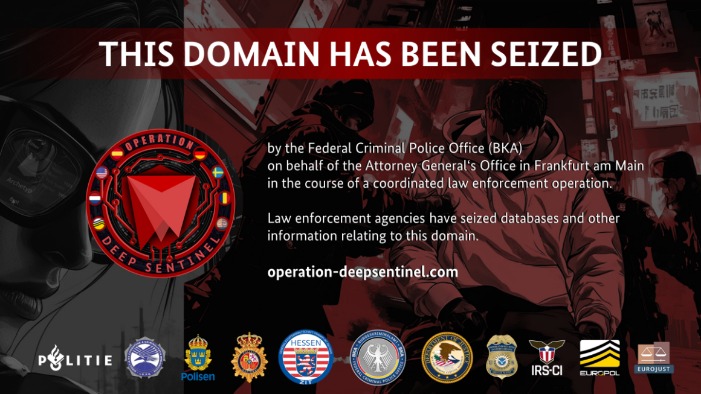
Dark Web Drug Market Busted By European And US Authorities

Unlike Bitcoin, which records every payment on a public ledger, Monero conceals all transaction details by default which makes them nearly impossible to trace. In total, 20 additional properties were searched, and seven individuals were arrested in Sweden. Across all suspects, law enforcement confiscated 47 smartphones, 45 computers and notebooks, various narcotics, and additional assets.
Just a month earlier, Operation RapTor led to the arrest of 270 suspects from ten countries and the seizure of two tonnes of drugs, €184 million in cash and crypto, and 180 firearms. Much of this progress stems from intelligence obtained after the fall of several other dark web marketplaces, including Nemesis, Bohemia, Tor2Door, and Kingdom Market. The operation, dubbed Deep Sentinel, unfolded between June 11 and 13 and involved 300 officers in six countries. It resulted in the arrest of the market’s 30-year-old German administrator in Spain, as well as the apprehension of several top vendors and a moderator. Authorities took offline the marketplace’s infrastructure in the Netherlands and seized assets totaling €7.8 million. The takedown followed years of investigation into the platform’s infrastructure and operators.
What made Archetyp especially notorious was its allowance of fentanyl and similarly potent synthetic opioids, a rare and deadly exception in the dark web market landscape. Authorities estimate that total transactions on the platform exceeded €250 million (approximately Rs. 2400 Crores), much of it flowing anonymously through cryptocurrencies. In the end, Archetype Market is just another chapter in the ongoing saga of the dark web’s illicit marketplaces. It’s a product of technological evolution, competitive pressures, and the persistent desires of buyers and sellers who prefer anonymity and are willing to cross legal and moral lines. As an outside observer, best vpn for archetyp darknet market visiting it was a reminder that these hidden corners still thrive, adapt, and grow more sophisticated with each passing year. Police in Germany add that as many as 3,200 vendors are registered on Archetyp.
- The operation, dubbed Operation Deep Sentinel, has since replaced Archetyp’s landing page with a seizure notice and a warning video aimed at dissuading would-be dark web entrepreneurs.
- Whether focused on fraud, hacking, or trafficking, all face increased scrutiny.
- The joint operation is a significant victory over drug peddling on the web, closing down a criminal enterprise that has been operating for over five years and enabled hundreds of millions of euros’ worth of illicit narcotics to be sold.
- During its five-year run, the platform processed over €250 million ($289 million) in transactions using Monero cryptocurrency.
- The digital drug bazaar had evolved into one of the dark web’s most prominent hubs, boasting over 612,000 users and generating more than €250 million (nearly \$289 million) in illegal cryptocurrency transactions.
Archetype Market seemed to address some of these trust issues by claiming a verification process for vendors. There’s mention of deposits or bonds that vendors need to provide to prove they aren’t going to run off immediately. If a vendor wants to become “trusted,” they apparently have to put up a decent chunk of cryptocurrency as a kind of insurance. Without such measures, a marketplace can quickly devolve into a hotbed of one-off scams. On the Reddit-style dark web forum known as “Dread,” users are trying to determine which vendors were compromised by the operation, Straight Arrow News found.
